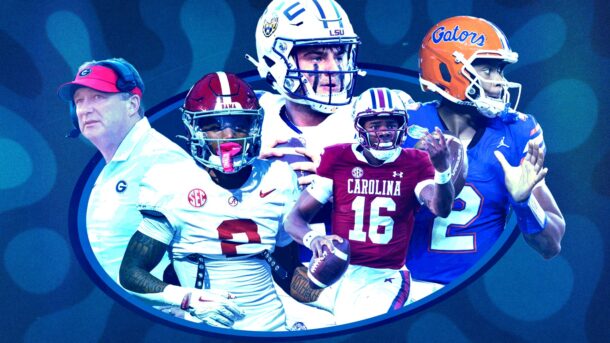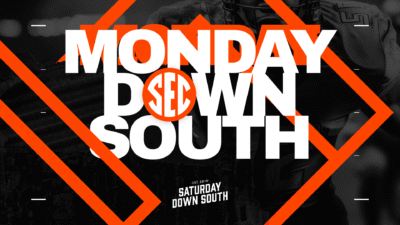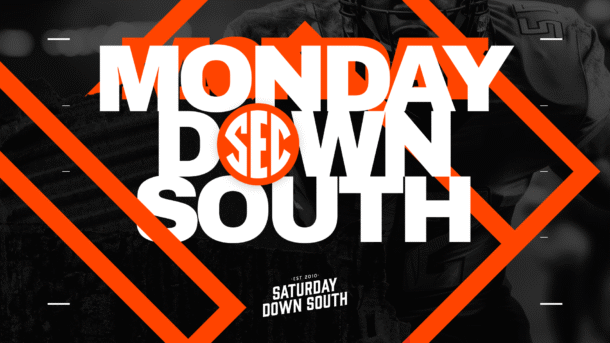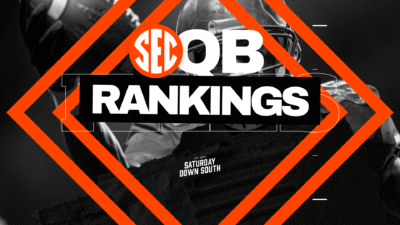Alabama, the 2014 SEC champion, began the season with a Chick-fil-A Kickoff win against West Virginia and ended the calendar year with a conference title game victory against Missouri.
At 12-1, the Tide merited inclusion in the College Football Playoff. That meant traveling to the Superdome in New Orleans to play eventual national champion Ohio State.
But what if the game instead took place in Atlanta’s Georgia Dome?
Alabama lost to the Buckeyes because its defense couldn’t contain Cardale Jones and Ezekiel Elliott, not because of the venue. Playing deep within SEC country in the Sugar Bowl — a familiar spot for the Tide — gave the team that theoretical advantage anyway. To suggest playing the game in Atlanta would’ve initiated an eight-point swing would be ludicrous.
But it would’ve represented Bama’s third game of the year inside the stadium. The two others resulted in landmark wins.
RELATED: Which cities should host the College Football Playoff in 2018-20?
As elite offenses capable of shredding even the best SEC defense surface around the country, the conference’s margin of error in College Football Playoff games no longer projects as significant, as it once did during the BCS era.
Playing the 2018 CFP championship in Atlanta wouldn’t guarantee a win for an SEC team, or even participation. A semifinal victory against one of the four best teams in the country would be the only way to secure an appearance. (Again, it will be a greater accomplishment for an SEC team to win a national title in the next few seasons than it was three years ago.)
With the stakes so high and the difference between participating and winning so small, though, an SEC team in contention would love to play inside a venue that it recently leveraged for a conference championship game win. There’s something comforting about the familiarity, particularly for college kids on sensory overload during what usually is the most stressful moment of their athletic career.
Atlanta is preparing a bid for the 2018 CFP championship, aiming to host it in the new Falcons facility. Bids are due to the CFP committee by May 27. The committee then will award host sites for the ’18, ’19 and ’20 games this fall.
The city won’t bid in ’19 because it hopes to host that year’s Super Bowl, and isn’t eligible in ’20 because the Peach Bowl represents a semifinal site.
According to the Atlanta Journal-Constitution, the expected competition includes five cities: Miami; Santa Clara, Calif., site of the San Francisco 49ers’ stadium; San Antonio; Jacksonville, Fla.; and Charlotte.
With all due respect to Birmingham, Ala., where the SEC offices remain located, and New Orleans (with the aforementioned Sugar Bowl), in many ways Atlanta is the epicenter of the conference’s on-field play.
Wouldn’t it seem odd if college football’s premier game neglects SEC country through its first six years?
The game already has visited Arlington, Texas, home to the Dallas Cowboys, and college football will congregate in Glendale, Ariz., in January, home to the Arizona Cardinals. Check out the list of competing cities for the ’18 game again. Four of them feature NFL stadiums.
To be fair, the Atlanta site is an NFL stadium as well. Atlanta is a good sports city, both for professional franchises and college fans. But it symbolizes college, and the SEC, more loudly than those other contenders.
Unless you live in Atlanta or you’re a resident of the Southeastern United States hoping for easy travel access to see your team in the ’18 College Football Playoff championship, the result of this selection process isn’t a huge deal. Coaches like Nick Saban, Gus Malzahn and Butch Jones will concern themselves with the team’s third quarterback during the ’17 season before they’ll fret over the host site of the title game.
But SEC fans should root for Atlanta to win the championship game bid, both for familiarity with the stadium if an SEC team makes it and for its symbolic representation of the region’s place within the sport’s culture.
Whenever the CFP committee makes its announcement this fall, expect every SEC team to start coveting a familiar postseason destination in January 2018.
An itinerant journalist, Christopher has moved between states 11 times in seven years. Formally an injury-prone Division I 800-meter specialist, he now wanders the Rockies in search of high peaks.






